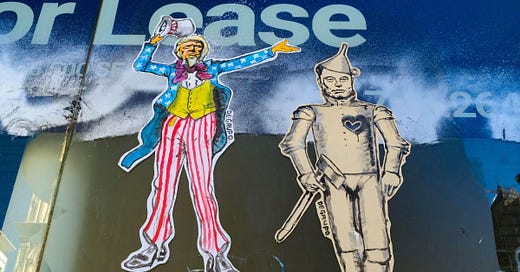
Discover more from REACTION
It took the fictional illness of a fictional host of a fictional show, but Alan Partridge finally got his second series as This Time with Alan Partridge debuted on BBC1 on Monday night. Then again, it’s easy to forget that the entire venture is fiction. Very few comic creations feel as real as Partridge, whilst many real-world presenters seem considerably more fake.
There was talk that the new show would be different; that this Alan would be more aware of current social trends and reflect them in his own way. Yet happily, on the evidence of the first episode, this was still the same old Alan, trapped in the bubble of his own peculiar neuroses that he’s occupied since he first appeared on our screens in The Day Today back in 1994.
Over the years, Coogan has lost none of that essence, even as he (alongside co-creator Armando Iannucci) refined the character who began as a sports commentator with a greased down hairline and a penchant for putting his foot in his mouth, heel first. Over the years, he’s become the pastiche of bland TV hosts; channelling a Terry Wogan vibe, if Wogan also had right-wing tendencies and a pathological inability to let a slight go.
The six episodes of his original talk show, Knowing Me, Knowing You, ended with Partridge accidentally killing a man. It was a fall subsequently documented in two series of I’m Alan Partridge, arguably the high point of British comedy of the past thirty or more years. The first series began with an eventful meeting with the BBC’s commissioning editor, in which Alan utters the memorable line “Give me another series, you shit!”, paving way for Alan’s exile in local radio.
Those twelve episodes also marked the beginning of Coogan’s exile too, as he left Partridge behind to explore roles in Hollywood and then back in the UK where he made Saxondale about “an ex-roadie with anger management issues and his own pest control business in Stevenage”. Much of Coogan’s career has felt like that of an actor trying to escape a role that became too big for him yet a role that he would eventually have to accept would never be bettered.
If he seemed reluctant to return as Partridge with a series of short episodes sponsored by a lager company (Midmorning Matters), less reluctant was the movie that followed. Yet Alan Partridge: Alpha Papa restyled Alan through a Hollywood sensibility and never felt like the authentic Partridge experience, with Coogan looking the most like Coogan he’d ever done whilst playing the role. American audiences clearly weren’t ready for the perpetually flaking, out of date stylings of Alan. The result was decent but ultimately nothing more. We were left wanting the real Partridge.
Thankfully, the real Alan finally returned to our screens on BBC1 on Monday night. The camera hadn’t found focus before Alan was complaining of dry mouth and his first exchange with his co-presenter was a wonderfully gratuitous reference to his skin problems. No concessions were being made. It certainly felt like Alan was back.
The new show takes the format of a typically well-made but rather dull BBC magazine programme and its most obvious target is The One Show. Alan has now matured (not a single “Ah! Ha!” in the first episode) and slimmed down to look like a modern TV professional; better dressed, less like Wogan, and much closer to Richard Madeley, another presenter who doesn’t seem to understand the nature of scripted TV. The show too has matured. It might be closer to Knowing Me, Knowing You but it also synthesises what came before it, managing to be part talk show, part fly on the wall. Choosing not to air most of the video segments, the writers have cleverly left room for Lynn, Alan’s PA, to creep onto the set.
New viewers might not quite understand the significance but the dynamic between Lynn and Alan has been the most compelling of all of Alan’s relationships, existing in a deeply troubled place where one person’s need meets another person’s ego-driven cruelty. Lynn is both fiercely loyal but also plagued by envy, bitterness, and vindictiveness, all wrapped around her own religious fervour. It’s a small role given real presence by Felicity Montagu and, in this household, got the biggest cheer of the night. Lynn knows the true Partridge and, through her, we also see how the man who has made a career in light entertainment is plagued by demons. He is self-obsessed and singularly unsuited to the life he’s chosen. And that, really, is the beauty of this new incarnation of Partridge.
After near 25 years on our screens (28 if you include the three years he appeared on Radio 4), Alan Partridge has a deeper backstory than almost any comic creation you could care to name. It’s also helpful to know that backstory in order to appreciate what’s going on.
When Alan visits a hygienist, for example, he watches a short video of her washing her hands. It’s an uncomfortable scene as the hands build up a lather and the squelching increases in volume. Alan is then heard muttering, in his deep-radio baritone, about “creamy hands”. It gives the scene an obvious subtext yet there’s another deeper resonance – Alan’s inexplicable sexual interests and how he can often fixate on objects and people. The hands are suddenly reminiscent of the strange dream sequences of Alan dancing in rubber hotpants in front of the BBC commissioning editor (and others) or the still-mystery contents of his draw in his Travel Tavern room.
If the first episode is a measure, the series should be cringeworthy and scattered with enough Partridge-isms that it’s likely a few will enter the lexicon of fans: “an overwhelming sense of Gary Newman”, “Grandad Graham”, “smooth fat teenage boy”, “drop a thigh”. This is meant to be good TV done terribly badly and the execution is pitch-perfect: Alan mistimes a walk across set, leaving the studio echoing to his footsteps; he chases an unwilling interviewee out of the studio, intent on continuing the Roger Cook-style interrogation in a lift, until they both become star-struck in the presence of Emily Maitlis.
Best of all, Alan’s interactions with his co-host, played brilliantly by Susannah Fielding, are hopefully a good omen of what’s to come. She is already providing the kind of straight role that Barbara Durkin provided as Susan, the manager of the Linton Travel Tavern. The nuances of Fielding’s performance cannot be understated. It’s worth tracking her response to Alan, as panic, anger, fear, and loathing contort the fixed TV smile. It is the first surprise in a series that promises to be gloriously “unwatchable”.
Subscribe to REACTION
Iain Martin and the team make sense of the news, providing commentary and analysis on the stories that matter in politics, geopolitics, economics and culture.











